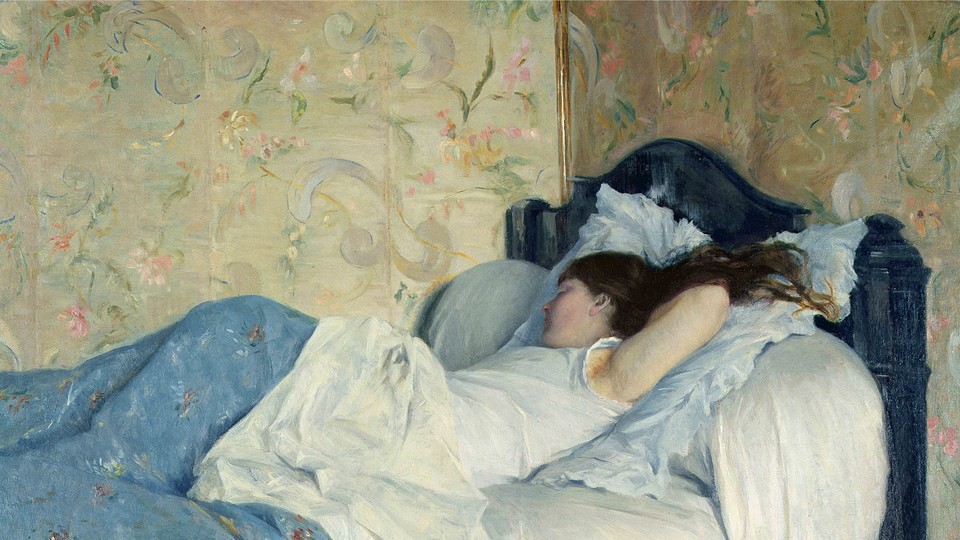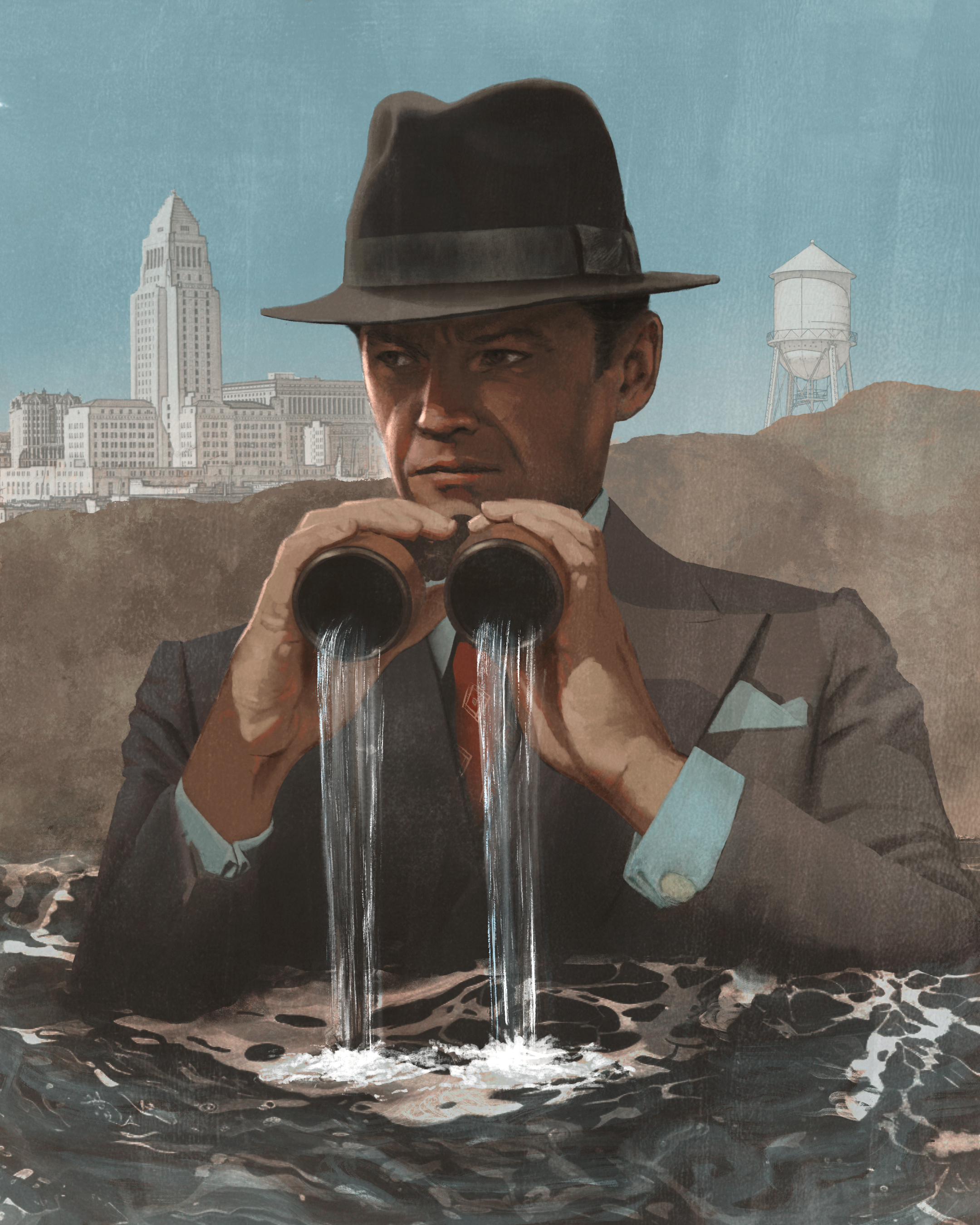The Pleasures of Procrastination
4 min read
This is an edition of the Books Briefing, our editors’ weekly guide to the best in books. Sign up for it here.
For writers, especially ones working in deadline-based industries such as journalism, pushing due dates is as natural as breathing. Sometimes the resulting time pressure—I really must file this to my editor now—unlocks flashes of brilliance, turning the carbon grist of my thoughts into an unlikely diamond. (More often it inspires mediocre metaphors like that one.) I’m dissatisfied with this tendency to dillydally. In my idle dreams of a perfect world, I see myself upright and regimented at my desk, sipping wholesome black coffee, and pleasantly tapping at my keyboard as I chip away at different tasks. Wasting time—or letting time pass without squeezing productivity out of it—feels morally suspect; in an essay this week, Hillary Kelly describes procrastination as “a tic that people are desperate to dispel.” But, thankfully, she offers an antidote: Rosalind Brown’s new novel, Practice, “a welcome gift for those who dither about their dithering.”
First, here are three new stories from The Atlantic’s Books section:
- “Eustasy,” a poem by Nikky Finney
- Don’t give up on tourism. Just do it better.
- The awful ferocity of midlife desire
The book is a long look into one Sunday in the life of Annabel, a young Oxford student whose task is to write a paper on Shakespeare. But, unsurprisingly to anyone who remembers their own school days, Annabel manages to put off the work with a brilliant list of important other things to get through. There are human needs to meet: She has to make tea, eat, use the bathroom, exercise. She’s also distracted by the many branching paths of her thoughts—she dwells on lovers, friends, family, bad memories, idle questions. Her goal is to make her mind into a minimalist palace, a clean and shiny Apple Store–style temple to literature; from there, she will be able to smoothly choose and assemble the items she needs to finish her assignment. Instead, her head is a jumbled hallway closet, full of all the rattling stuff of life.
But the truly creative mind requires this kind of clutter, Kelly argues. The act of rumination—of wending through competing streams of thought, examining long-forgotten memories, elliptically orbiting an idea again and again—is crucial to imagination, and a militant focus on getting work done eliminates the hours we need to indulge in these processes. Procrastination is productive, in its own way. More important, it reclaims the space our culture is ceding to an unrelenting work ethic. Annabel doesn’t finish her paper by the novel’s conclusion; she ends the day with just a few scattered notes on Shakespeare’s sonnets. But the time she spent thinking about it (and about other things) isn’t wasted—and neither is the reader’s. Ambling through a novel like this one inspires connections, epiphanies, excitement. These in-between moments when nothing tangible gets done are full of internal effort; rushing through them denies us one of the major delights of being alive.

An Antidote to the Cult of Self-Discipline
By Hillary Kelly
A new novel sees procrastination as one of the last bastions of the creative mind.
Read the full article.
What to Read
Dayswork, by Chris Bachelder and Jennifer Habel
I almost prefer to keep certain books on my to-read list forever, where they remain full of magical possibility and cannot disappoint me. Moby-Dick is one of them. What if, God forbid, I chance to read it at the wrong time or in the wrong place and it doesn’t change my life? So I turn to Dayswork instead, which feels like cheating—you get some of the experience of reading Moby-Dick without any of the risk. This very novel novel, written collaboratively by a novelist and a poet who happen to be married, is sort of a sneaky biography of Herman Melville, framed by a meta-narrative about a woman writing a book during lockdown. This narrator delivers a parade of delightful facts and quotes and anecdotes, which she’s been collecting on sticky notes. You could think of it also as a biography of Melville’s most famous novel, which has had its own life after his death and touched so many other lives. Dayswork is fragmentary, digressive, and completely absorbing. — Elisa Gabbert
From our list: Five books for people who really love books
Out Next Week
📚 The Anthropologists, by Ayşegül Savaş
📚 Long Island Compromise, by Taffy Brodesser-Akner
📚 Devil’s Contract, by Ed Simon
Your Weekend Read

The Lies Los Angeles Was Built Upon
By Chris Stanton
If the movie [Chinatown] was to be about Los Angeles itself, [Robert] Towne wanted to intertwine the characters’ personal drama with some sordid local scandal—and where better to look for inspiration than the actual history of how the city had stolen water from a valley 250 miles away, ravaging the valley in the process? Towne had found an original sin on which to build his story, but the audacity of the crime and the sheer depth of conspiracy required to pull it off seemed impossible to fit into a screenplay. His first draft was about 340 pages.
Read the full article.
When you buy a book using a link in this newsletter, we receive a commission. Thank you for supporting The Atlantic.
Explore all of our newsletters.



